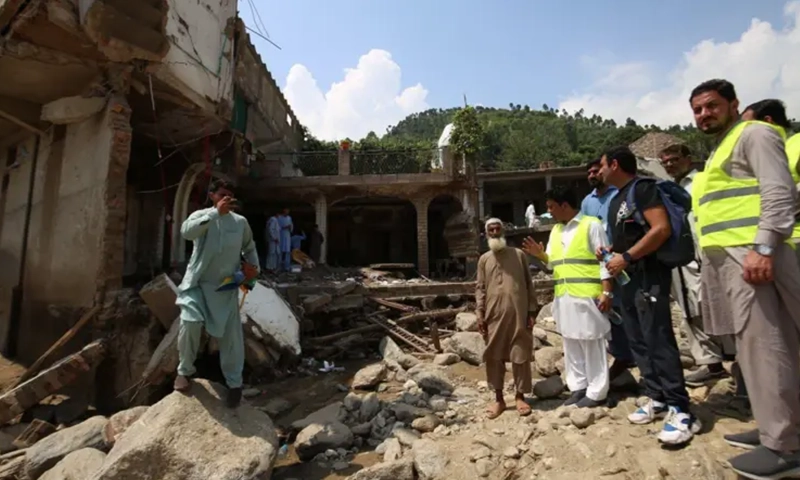- Web Desk
- Feb 24, 2026
Cloudburst trauma: mental health crisis deepens after KP floods
-

- Web Desk
- Aug 23, 2025

PESHAWAR: Dark clouds and heavy rain have now become a symbol of fear in this village, said Dr Muhammad Israr, a psychiatrist who travelled with a team of doctors to Buner district in Khyber Pakhtunkhwa after a cloudburst on August 15 triggered flash floods and widespread devastation.
Recent torrential rains, cloudbursts and flash floods have caused massive destruction in northern districts of Khyber Pakhtunkhwa, leaving 386 dead and inflicting an estimated loss of Rs20 billion on the province’s infrastructure.
“When clouds gathered over Bishnoi village and it started to rain, panic spread among people. We had never seen such a situation in our lives,” he said.
“People appear to be suffering from an unfamiliar psychological condition,” he said
RADS unveils new model to improve Pakistan’s HDI measurement
On August 15, sudden cloudbursts hit five districts — Buner, Swat, Bajaur, Shangla, Battagaram and Swabi — causing flash floods that killed more than 390 people, according to the Provincial Disaster Management Authority (PDMA). Homes, livestock and farmland were also destroyed.
Buner floods turn wedding celebrations into 24 funerals
Dr Israr told the BBC Urdu that those who suffered devastating personal losses are in severe psychological distress.
Hamid (name changed) lost 17 family members in the flood; only he survived. Some of his relatives are still missing, with families digging graves in advance in the hope that at least the bodies will be recovered.
Doctors have also treated patients who lost limbs in the floods but remain in shock, unable to speak. “They just stare at others; when they try to speak, they break down in tears,” said Dr Israr.
“In these areas, fear of clouds and rain has become widespread. People feel restless and constantly fear another flood,” he said.
Flash floods devastate Buner as KP death toll crosses 330
A team of 15 members from Lady Reading Hospital Peshawar including doctors and male nurses, visited the region with medicines, food and relief supplies.
Dr Israr recalled how a villager panicked when a corner of an umbrella brushed against his shoulder, shouting that he thought something had struck him.
The Pakistan Psychiatric Society has now launched a programme to provide mental health support to flood survivors.
In Swabi’s Dalori Bala area, 37 people were killed in the floods, including 14 members of the family of Anwar Zeb, a Saudi Arabia–based expatriate who had postponed his return flight to attend a traditional archery competition.
His childhood friend, Muhammad Idrees, recalled finding Zeb’s body under debris, with his children lying lifeless on his arms “as if they had fallen asleep beside him.”
In Swat, seminary students joined rescue efforts, cleaning mud-filled houses and recovering valuables.
In one case, they found 15–20 tolas of gold jewellery in a damaged home and returned it to the owners.
“In our tradition, if someone is in trouble, the whole community helps without expecting anything in return,” said Qari Muhammad Daud, head of the madrassa.




